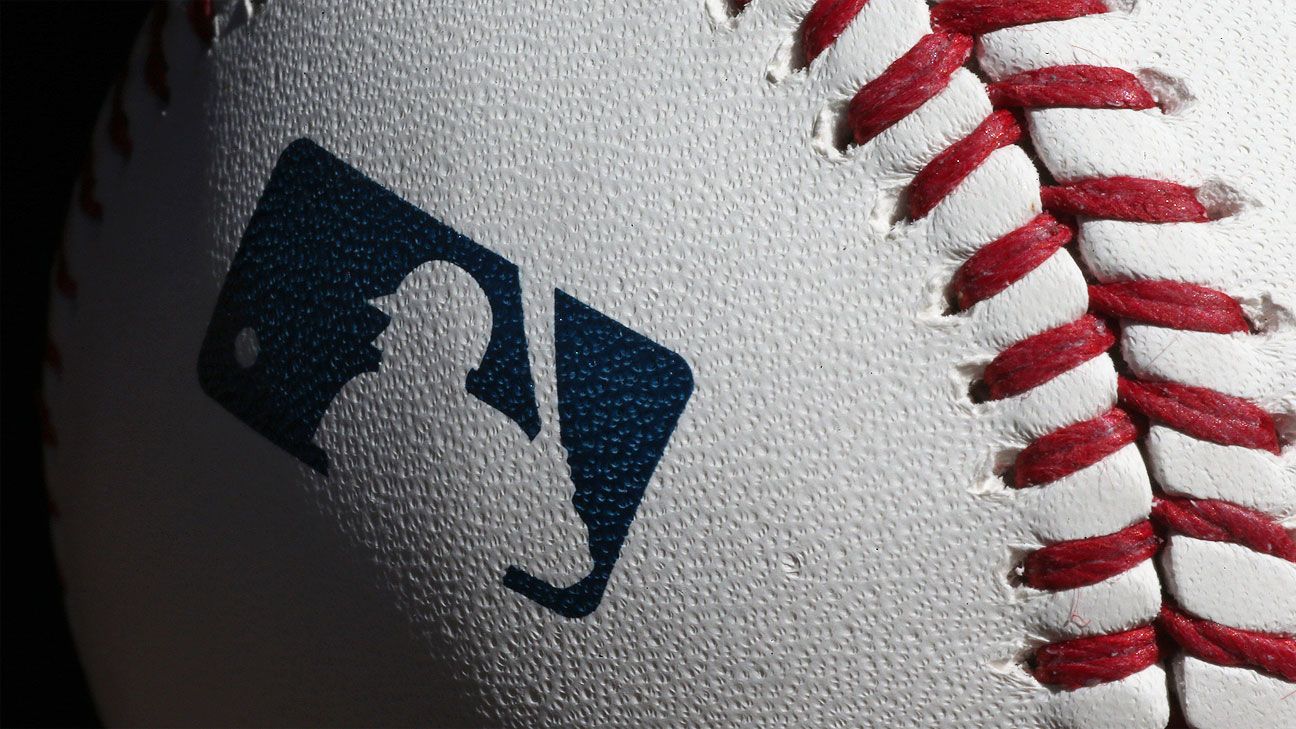
Major League Baseball expects to offer a return-to-play proposal to the MLB Players Association within a week as teams have begun to encourage players to prepare for a "spring" training that could begin in mid-June and a season that would start in early July, sources familiar with the discussions told ESPN.
While a significant number of hurdles remain and some industry leaders believe June and July return dates are optimistic, the approval of ownership on a plan and dialogue about specifics with the union would mark two vital steps in baseball's return from a season so far delayed six weeks by the coronavirus.
General managers and managers from at least a dozen teams have reached out to players and suggested they ramp up baseball activities, executives, players and agents familiar with the conversations told ESPN. Some teams have suggested players prepare for a spring training that would begin as early as June 10 and a season that would begin July 1, dates first suggested publicly by former player Trevor Plouffe. Other teams, sources said, are being more general in their timetables, understanding the complications that hard dates can cause and wanting instead to nudge players toward being in game shape.
Already dozens of players are working out at team facilities around the country, according to sources, and the possibility of holding a three- to four-week spring training at teams' home stadiums appeals to a number of stakeholders. After entertaining the ideas of quarantining all players in Arizona or using three- or five-city hubs to hold games, there is momentum toward the league trying to play games in home stadiums, sources said.
The complications could be manifold, whether due to a coronavirus breakout in a city or the risk added by traveling, but the logistical concerns aren't nearly as acute as the building of hubs would be. Three player representatives, who have been sending updates to the union's rank-and-file, believe the union would be more receptive to such a plan because players could spend half their games at home and with families.
This does not mean the league's proposal to the players' association will be met with open arms. Owners have pushed the league to ask players to take a pay cut from their salaries because of cratering revenues exacerbated by no fans being allowed in stadiums upon any return. In an agreement between the league and union, players agreed to be paid a prorated portion of their salaries based on games played, which the MLBPA argues covers any lessening of salary players should take.
The potential snags go well beyond money. Returning to play in this environment poses a risk to players -- one they hope is allayed as much as possible in the league's proposal. Multiple players have reached out to the union asking what would happen if they opted not to play in 2020 out of fear for their health or a desire to remain with their families during the coronavirus pandemic, sources told ESPN. Further, a more direct question was asked by a player during a Zoom call with Cleveland Indians players that was first reported by The Athletic: What happens if we come back and a player tests positive?
The league's answer to that question, and others, is eagerly anticipated by players whose sense of optimism has grown in the past week. At the same time, multiple officials and players have expressed reservation about negotiating an agreement as the country reopens, fearful that by the time the beginning of June rolls around, the climate for the game to return may not be as welcoming.
The unknown, sources said, is part of the motivator to start the negotiation process within a week. Not only does MLB need approval from owners and players to start a season, officials from the White House and top health officials expect to be consulted and give the go-ahead, sources said. Already MLB has been in contact with federal and state officials seeking guidance as it maneuvers toward a new opening day.
The look of the game and season will be determined in any agreement between the league and union. Multiple executives have suggested that as many as 50 players will be available for teams to use, and that they'll have active rosters of up to 30 players each game. The length of the season, should it start in July, could be between 80 and 100 games.
Any agreement is likely to include contingency plans going forward, sources said. Some officials fear a so-called second wave of coronavirus cases that some health officials have forecast and believe that instead of planning to play into late November, with an expanded playoff system, MLB would be better suited playing a shorter season that gives the league a greater likelihood to avoid potential complications.
The fallout from COVID-19 already has not just erased a large portion of the 2020 season, it has left front offices fearful of the immediate and long-term future. Scouting directors are waiting on the official word but told ESPN they expect the MLB draft in June to be five rounds instead of the standard 40. Further, while most teams have guaranteed employees pay through the end of May, the delay of baseball beyond July could precipitate a wave of furloughs and layoffs, according to sources.















 Phone: (800) 737. 6040
Phone: (800) 737. 6040 Fax: (800) 825 5558
Fax: (800) 825 5558 Website:
Website:  Email:
Email: 






